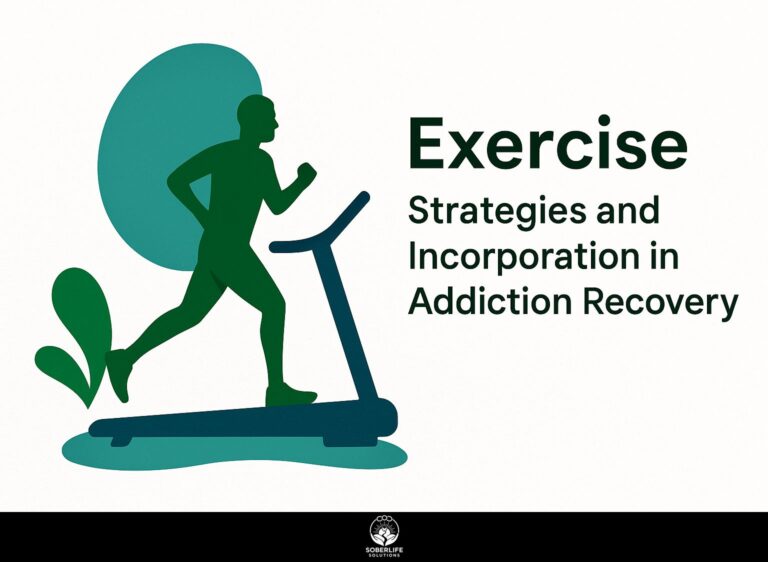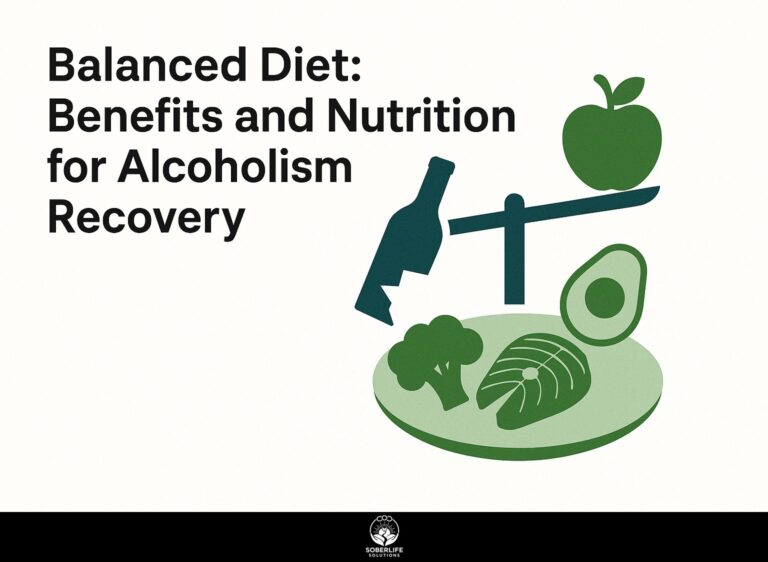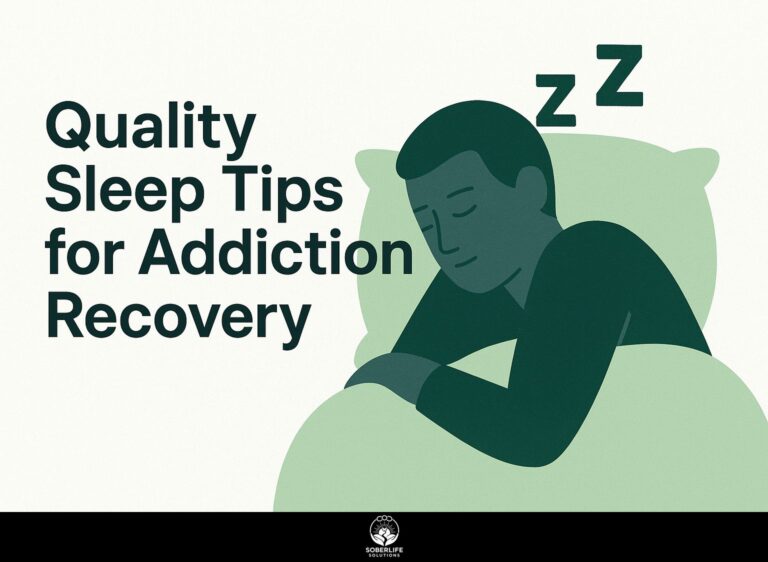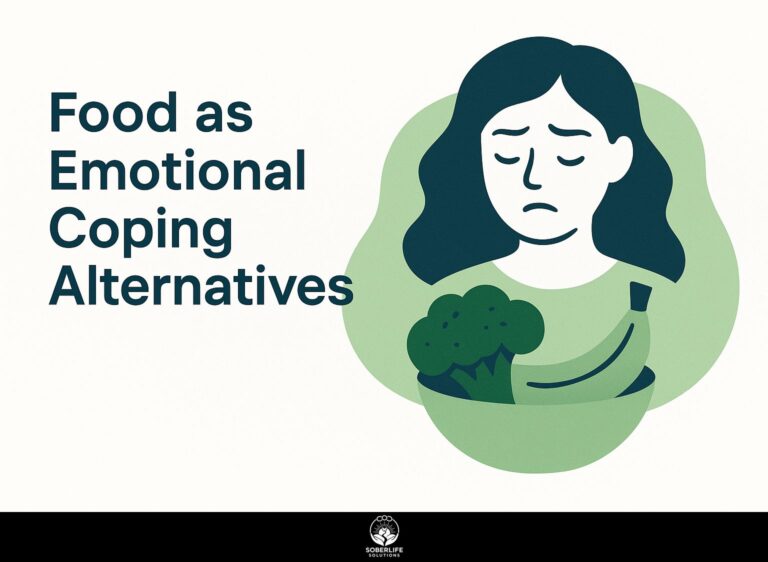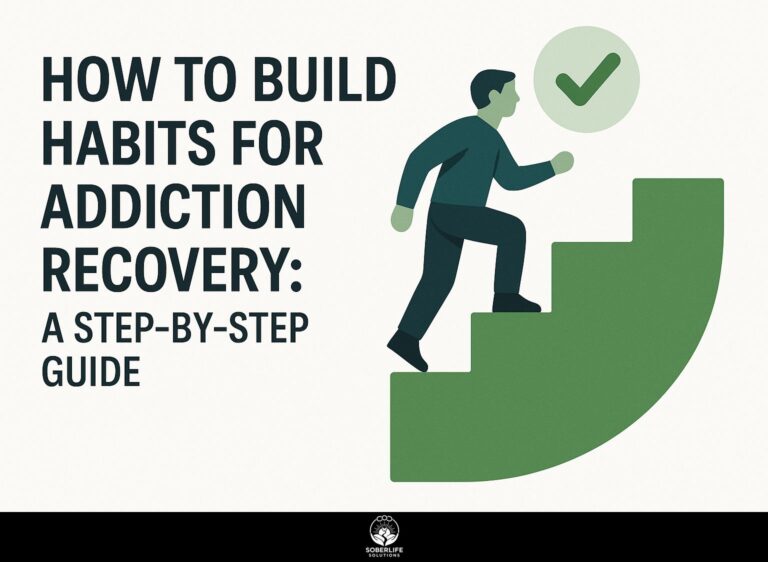How to Develop Hobbies in Recovery? A Guide
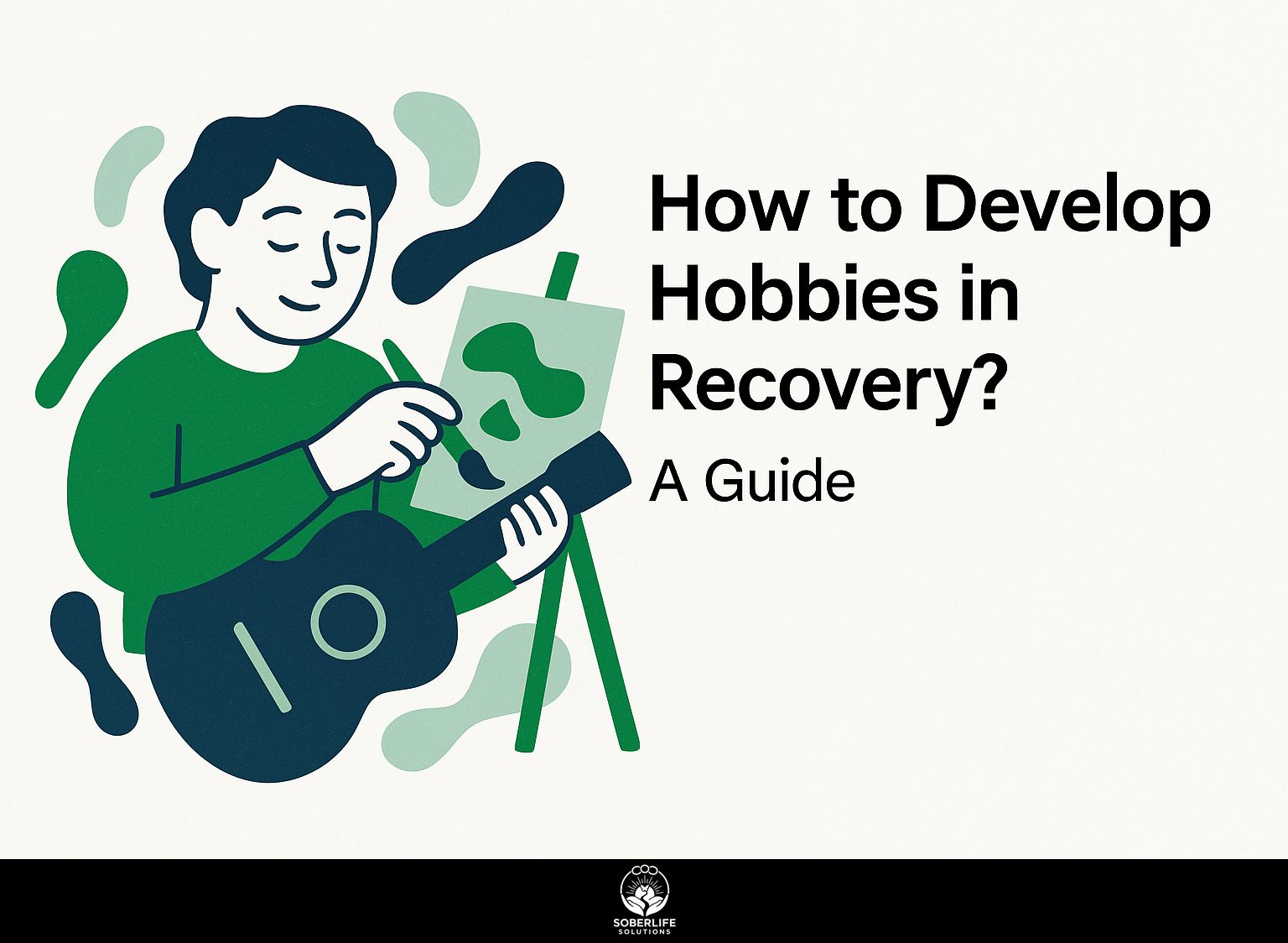
Finding joy through recovery hobbies is essential for building a fulfilled life. At Silver Ridge, we understand the importance of hobbies in overcoming the boredom risk that often accompanies recovery. This guide will show you how to find enjoyable hobbies, encouraging you to try new things and improve your mental health. Join us to learn how hobbies can play an important role in your recovery.
Key Takeaways:
Understanding the Importance of Hobbies
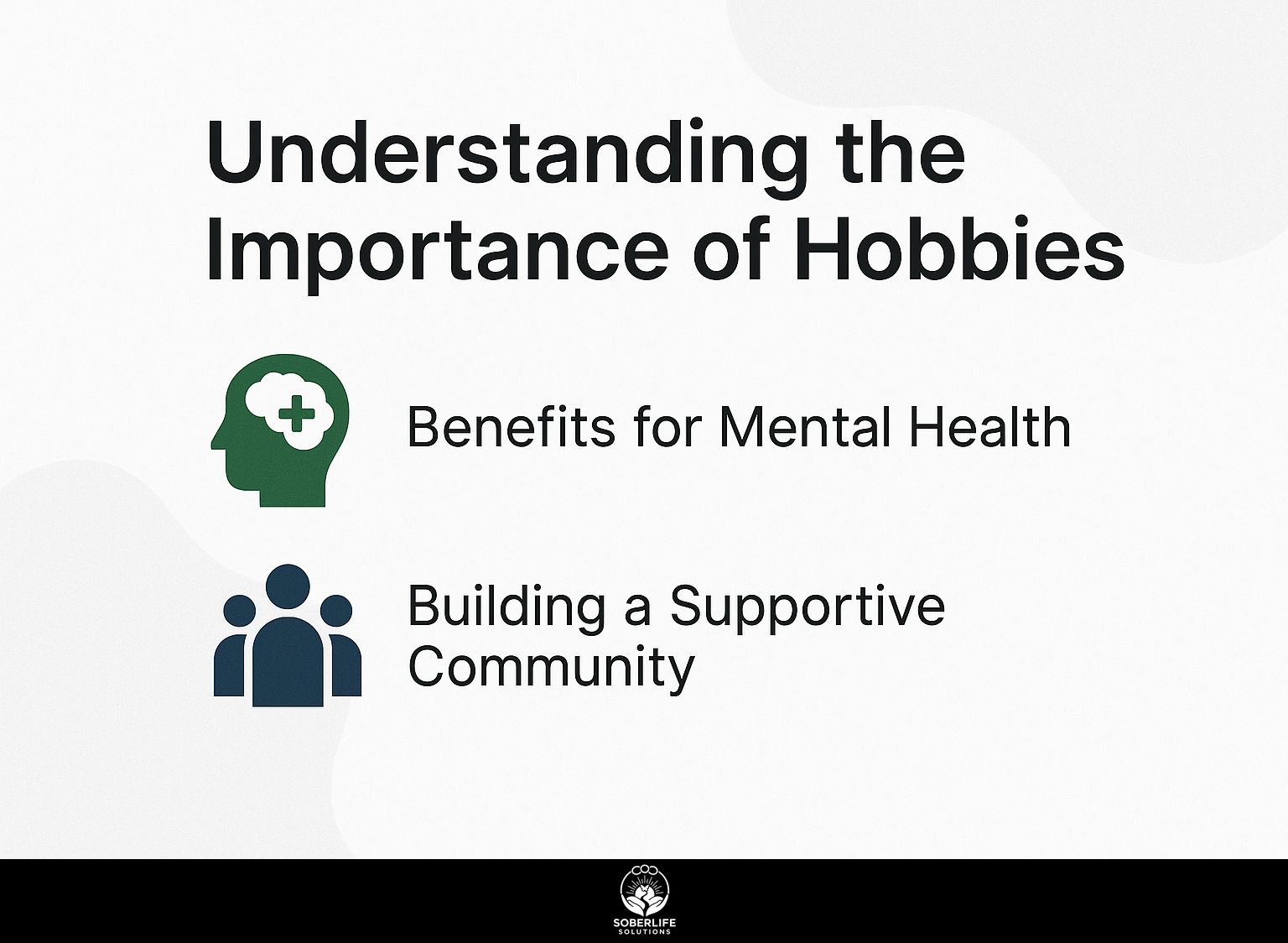
Hobbies are important for lowering stress and building social connections, which are key for people recovering from substance use. These activities can also help in building new connections for recovery, ultimately supporting long-term sobriety.
Benefits for Mental Health
Research shows that engaging in hobbies can improve mental health outcomes, reducing symptoms of anxiety and depression by up to 30% in recovering individuals.
To fully enjoy these benefits, try adding activities like painting, gardening, or playing an instrument to your routine.
For example, a study from the University of Texas showed that people who took part in creative activities felt less stressed and had better moods. In fact, Nature Medicine supports these findings, emphasizing the significant role hobbies play in enhancing mental well-being.
Websites like Skillshare offer organized courses for hobbies like photography or woodworking, helping beginners get started.
Spend a few hours each week on these activities, and keep note of how your mood changes over time to notice improvements.
Building a Supportive Community
Joining group activities like book clubs or hiking groups can create a feeling of community and encouragement for people in recovery.
Participating in organized group activities helps people connect and provides emotional support. For instance, volunteering at local shelters or community centers creates teamwork and shared purpose, helping individuals find fulfillment.
Similarly, yoga classes promote mindfulness and physical well-being while encouraging verbal sharing among participants. Consider various options like art workshops or cooking classes, which facilitate creativity and collaboration.
These activities let people interact socially, help them express themselves, share their experiences, and support their path to recovery. This aligns with research published by Nature, which explores how support provision can significantly impact recovery from substance-related issues. Related insight: Recovery Events 2023: Activities and Participation Guide provides a comprehensive overview of additional activities you can explore to enhance your recovery journey.
Identifying Your Interests
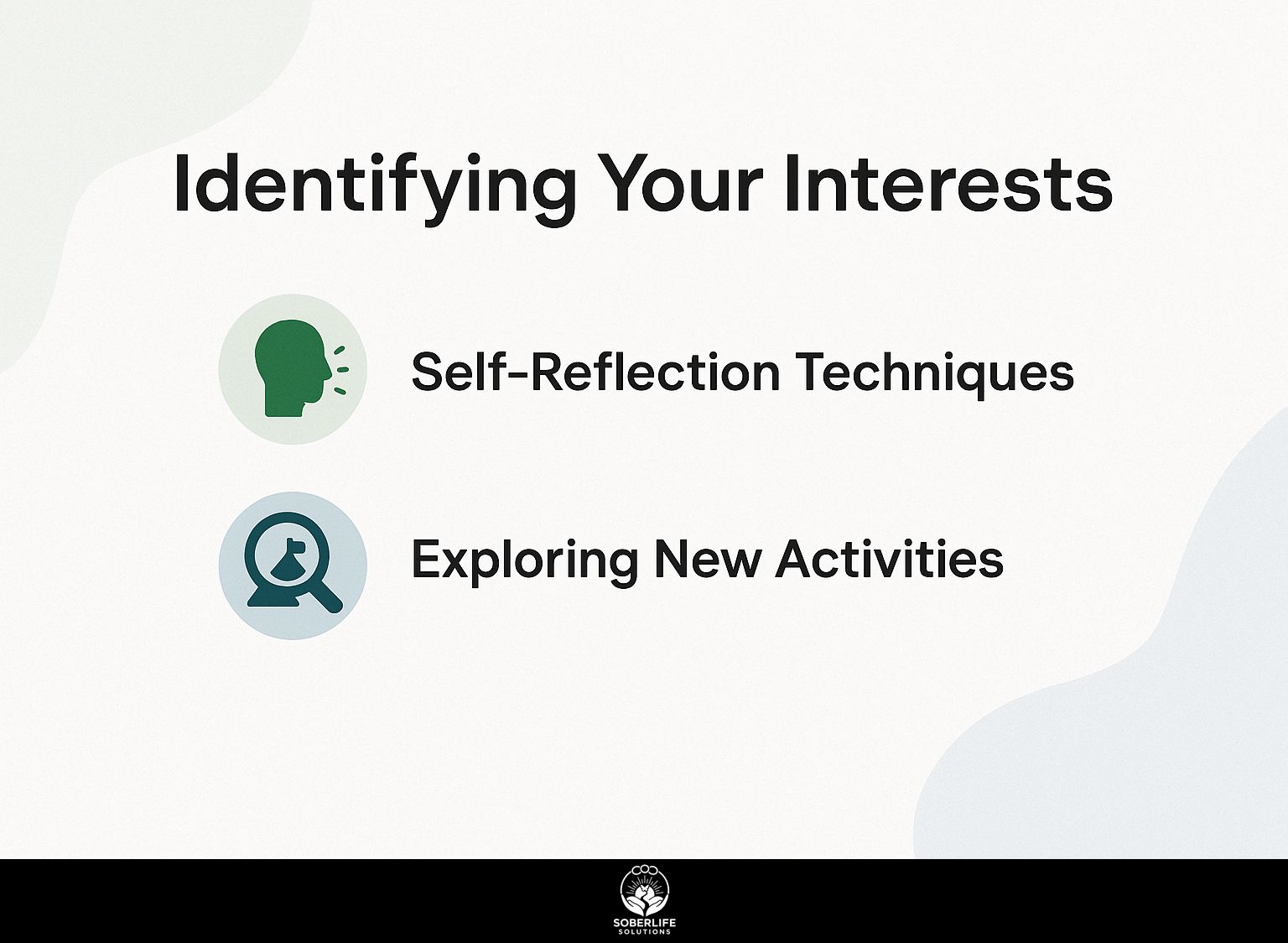
Finding what you like is a basic step in picking hobbies that match your personal interests and recovery aims.
Self-Reflection Techniques
Utilizing self-reflection techniques such as journaling and mindfulness can help clarify personal interests and values for recovery hobbies.
Consider setting aside 10-15 minutes daily for these practices. Start by jotting down your thoughts and feelings in a journal. Asking yourself questions like ‘What activities make me lose track of time?’ or ‘What am I excited about?’ can help find new ideas.
Engage in mindfulness exercises, such as focused breathing or guided meditations, to center your thoughts. Apps like Headspace or Calm offer great resources for beginners.
Think back on your notes and consider your responses to find hobbies that match what you care about most.
Exploring New Activities
Trying new activities can help you find interests; think about spending a month testing out 2-3 different hobbies such as hiking, painting, or cooking.
To maximize your hobby exploration, create a schedule that dedicates one week to each activity.
- For example, during the first week, you might concentrate on hiking by visiting nearby paths and nature parks.
- In week two, take a painting class or follow online tutorials to experiment with different techniques.
- Devote week three to cooking by trying out new recipes or attending a cooking workshop.
This organized method lets you really get involved in each hobby and figure out which ones you like the most.
Setting Realistic Goals
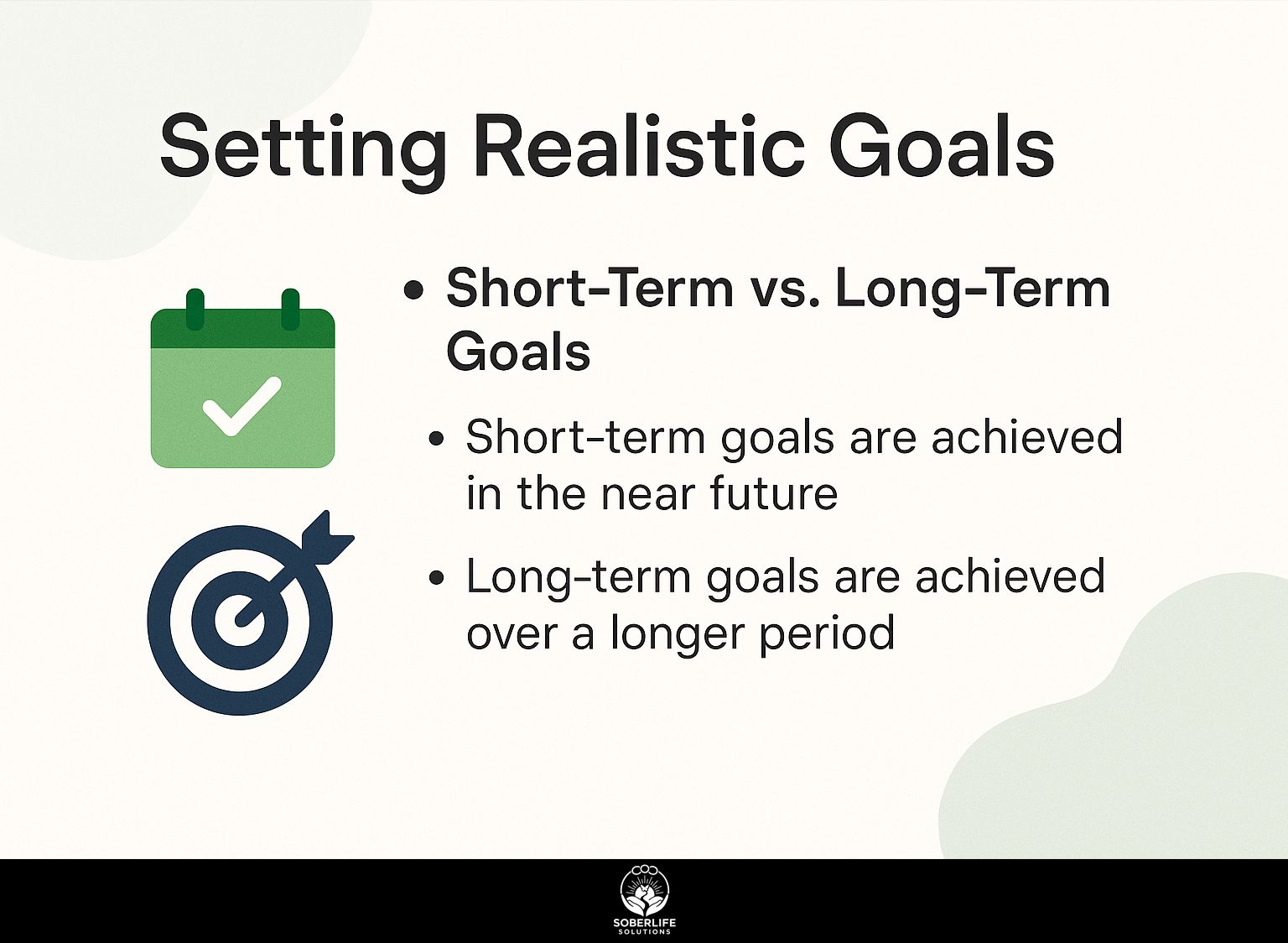
Setting realistic goals is important to keep you motivated and avoid feeling overwhelmed as you bring hobbies into your recovery.
Short-Term vs. Long-Term Goals
You might be thinking about attending a workshop soon, and want to become good at a hobby like gardening in six months.
For short-term hobbies, set specific, manageable targets-like completing a weekend workshop on basic plant care. This could directly improve your skills.
In contrast, a long-term goal, such as cultivating a flourishing vegetable garden, may require a timeline:
- Start with planning your garden layout within the first month.
- Followed by choosing plants in the second month.
- Then, dedicate the next three months to planting and caring for your garden, culminating in a harvest.
By differentiating between these goals, you’ll create a structured path for success.
Finding Resources and Classes
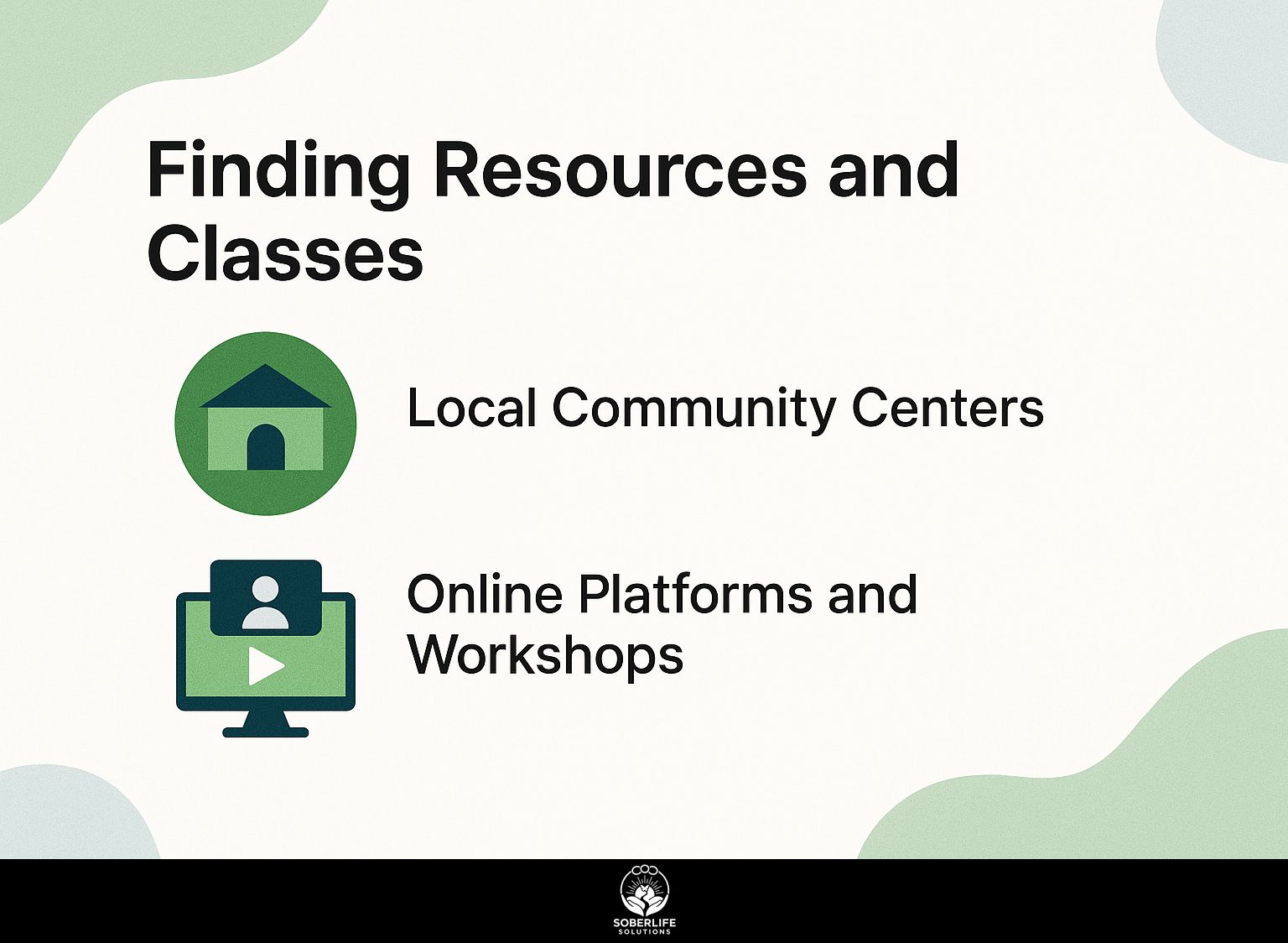
Using resources and classes is important for improving skills and can make your hobby better, making learning easier and more fun.
Local Community Centers
Local community centers usually offer many affordable classes, like yoga and art workshops, helping people learn and make friends.
Activities commonly found at these facilities include:
- Cooking classes
- Dance lessons
- Language courses
To find specific services, check your local city or community website. They usually post detailed schedules and descriptions there.
Many centers host outdoor events like movie nights or farmers’ markets, creating great opportunities for family engagement.
Don’t hesitate to call the center directly for the latest updates or to inquire about special programs, as these can change seasonally.
Online Platforms and Workshops
Online platforms like Skillshare and Coursera offer diverse workshops for hobbies ranging from cooking to music, providing flexibility to learn on your schedule.
Skillshare has classes taught by experts, such as ‘Introduction to Digital Painting’ and ‘Learning the Art of Pizza.’ You can take these classes at any time.
In contrast, Coursera works with universities to offer courses such as ‘The Science of Well-Being’ and ‘Creative Problem Solving.’ Both platforms typically offer free trials, allowing you to try different workshops before deciding. According to Thinkific’s review of online learning platforms, Coursera’s collaboration with universities ensures a broad range of academically rigorous courses.
Choose based on your interests and preferred learning style, whether it’s hands-on projects or academic courses.
Creating a Routine
Regularly spending time on hobbies can greatly lower stress and help you grow personally over time.
To get the most out of your hobbies, try doing them at least three times a week. Schedule specific time slots, such as Tuesday evenings for painting or Saturday mornings for hiking.
Use tools like Google Calendar to set alerts, which help you stay organized. Consider setting goals for each session; for instance, completing one painting or exploring a new trail.
This system creates responsibility and helps you feel fulfilled, highlighting how hobbies positively affect your overall health.
Overcoming Challenges
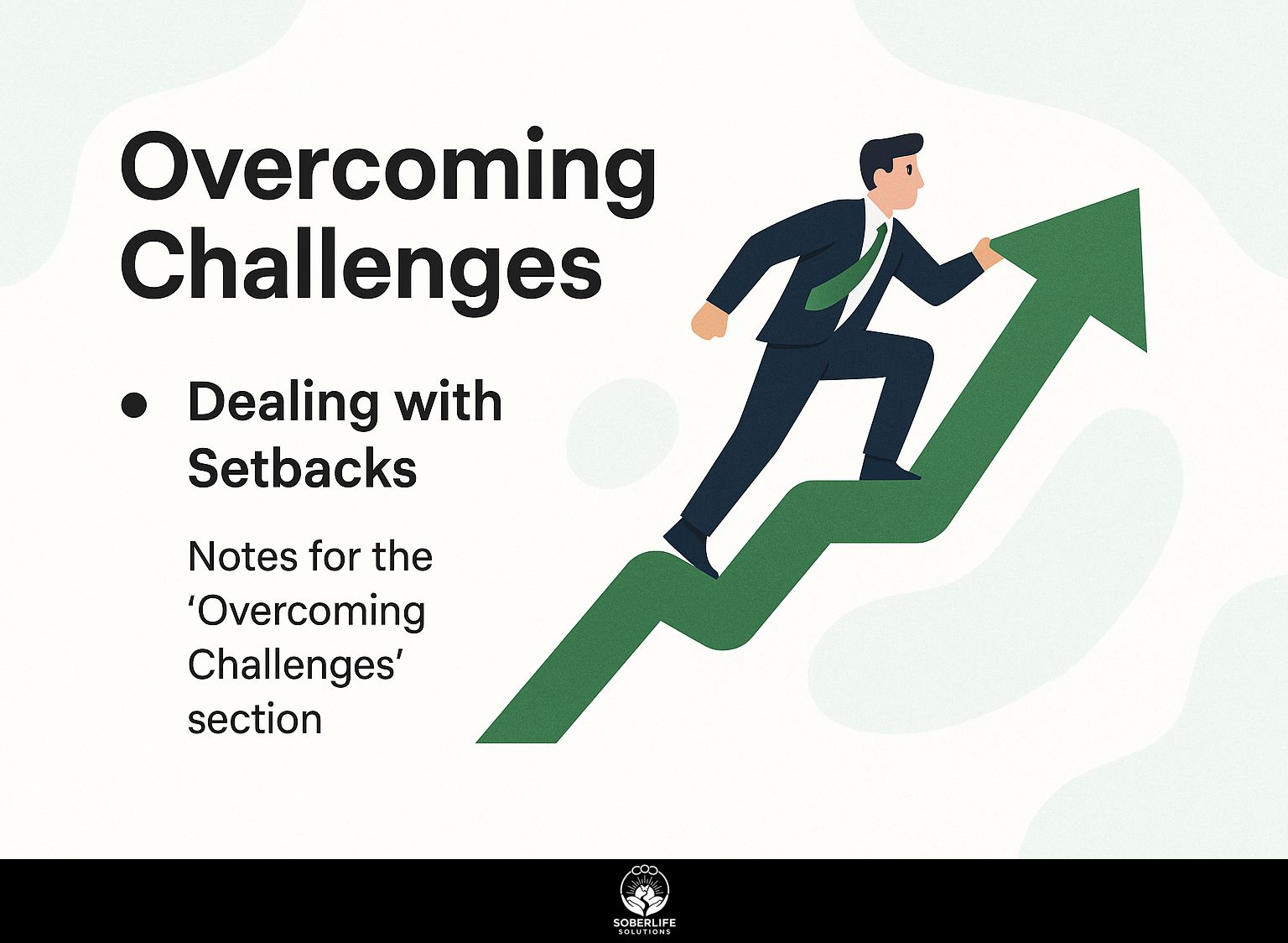
Problems can still occur even when you mean well; knowing how to handle these challenges is key to maintaining interest in hobbies.
Dealing with Setbacks
When faced with setbacks, such as loss of motivation, utilizing support groups or reconnecting with personal reasons for hobbies can provide necessary encouragement.
One practical strategy is to keep a journal detailing your motivations and goals. Think about the reasons you began your hobby, which can help renew your interest.
Engaging with a support network, like Silver Ridge, can be uplifting. They provide workshops and group talks where people can share their experiences and get helpful advice.
Consider participating in regular check-ins or accountability sessions with friends to maintain your focus. By participating in supportive environments, you grow stronger and feel refreshed, making it easier to overcome difficulties.
Celebrating Progress
Recognizing even small achievements supports positive actions and improves emotional health during recovery.
To celebrate milestones in your hobbies, consider sharing achievements with friends or engaging with community events.
- For instance, organize a small gathering to showcase your latest project, whether it’s art, writing, or sports.
- Making a plan to treat yourself can help you stay motivated. After reaching a goal, you could watch a movie, buy a new book, or spend a day out.
Online platforms like Meetup can connect you with local groups that share your interests, allowing you to celebrate and share your progress with like-minded individuals.
Frequently Asked Questions
What are some tips for developing hobbies in recovery?
1. Start small and focus on one hobby at a time. Trying to take on too much can be overwhelming and lead to frustration. 2. Choose hobbies that align with your interests. This will make it more enjoyable and increase the likelihood of sticking with it. 3. Find a hobby that provides a sense of accomplishment or purpose. This can help improve confidence and drive. 4. Consider joining a group or class related to your chosen hobby. This can provide a sense of community and support. 5. Be patient with yourself. Developing a new hobby takes time and practice, especially in recovery. 6. Don’t be afraid to try something new. Recovery is a time for growth and exploration, so be open to trying new things.
Why is it important to develop hobbies in recovery?
Developing hobbies in recovery can provide a sense of purpose and fulfillment. It can also serve as a healthy distraction from negative thoughts and behaviors. Engaging in hobbies can improve self-esteem, increase confidence, and provide a sense of accomplishment.
How can hobbies in recovery help prevent relapse?
Hobbies can serve as a positive outlet for stress and negative emotions, reducing the risk of turning to unhealthy coping mechanisms. They can also help fill the void left by substance use, providing a healthier and more fulfilling way to spend free time.
What are some examples of hobbies that can be beneficial in recovery?
Some examples of hobbies that can be beneficial in recovery include exercise, art or music, gardening, cooking, reading, and volunteering. These hobbies provide a sense of purpose, promote self-care, and can serve as healthy forms of self-expression.
How can I find hobbies that align with my interests?
Begin by writing down activities you like or have always wanted to experience. It can also be helpful to think about activities you enjoyed before addiction took over. Consider joining a class or group related to your interests, or simply start by exploring different hobbies on your own.
What are some signs that a hobby may not be a good fit for me in recovery?
If a hobby causes you to feel overwhelmed, anxious, or triggers cravings for substances, it may not be a good fit for you in recovery. It’s important to listen to your body and mind and make adjustments as needed. Don’t be afraid to try a new hobby if one isn’t working out for you.

